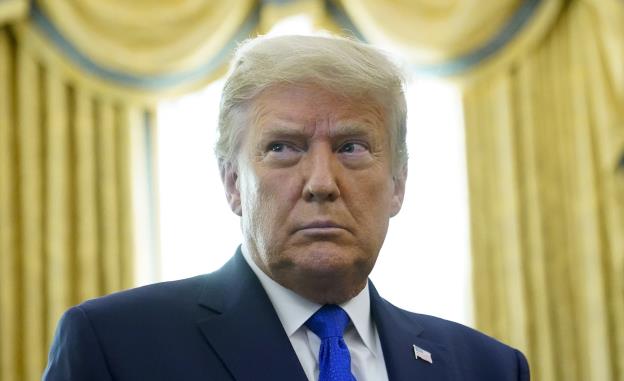Mark Meadows says ‘stay tuned’ after Trump meets lawmakers to discuss ‘mounting evidence’ of voter fraud; Matt Gaetz Says He Will Challenge Electoral College Votes on Jan. 6, and related 2020 Election stories
Mark Meadows says ‘stay tuned’ after Trump meets lawmakers to discuss ‘mounting evidence’ of voter fraud:
White House chief of staff Mark Meadows announced that President Trump huddled with “several” members of Congress to discuss an effort to “fight back” against President-elect Joe Biden’s victory.
The top aide announced the news as Trump’s personal lawyer, Rudy Giuliani, discussed on Newsmax the Trump legal team’s plan of action in yet another long-odds bid to challenge the results of the presidential contest by seeking evidence of widespread fraud in voting machines to support claims that have not held up in court.
“Several members of Congress just finished a meeting in the Oval Office with President @realDonaldTrump, preparing to fight back against mounting evidence of voter fraud. Stay tuned,” Meadows said in a Monday evening tweet, a stark break from federal and state officials who say they have not seen evidence of widespread voter fraud. —>READ MORE HERE
Rep. Matt Gaetz Says He Will Challenge Electoral College Votes on Jan. 6:
Rep. Matt Gaetz (R-Fla.) said on Dec. 19 that he plans to challenge electoral votes when they are counted during a joint session of Congress on Jan. 6.
“On January 6, I’m joining with the fighters in the Congress, and we are going to object to electors from states that didn’t run clean elections,” Gaetz told a crowd during the first day of Turning Point USA’s Student Action Summit, held in West Palm Beach, Florida.
Republicans in Congress are considering whether to join the effort to challenge the 2020 general election results. Rep. Mo Brooks (R-Ala.) initiated the push when he announced his intention to object to the electoral votes come January, while several other Republican lawmakers from both chambers have remained open to participating in the effort.
Objections during the joint session must be made in writing by at least one House member and one senator. If the objection meets the requirements, the joint session pauses and each house withdraws to its own chamber to debate the question for a maximum of two hours. The House and the Senate will then vote separately to accept or reject the objection, which requires a majority vote from both chambers. —>READ MORE HERE
Follow links below to related stories and opinions:
Former Wisconsin Judge: Court System ‘Deeply Intimidated’ by the Left
Trump appeals to Supreme Court, House Republicans to overturn ‘rigged’ election
Matt Gaetz Makes Stunning Election Promise for January 6th
Schiff: Trump ‘Has No Moral Compass’ — He Could Try a Military Coup
Donald Trump Denies Considering Martial Law to Rerun 2020 Election
Trump slams Georgia governor for not working fast enough to overturn election results







Comments are closed.